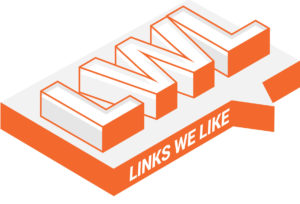LINKS WE LIKE #2

Here’s a quick weekly compilation of a few links we like and want to share with you:
- Could consumers sell access to their own encrypted data? It looks that way. “MIT’s New Blockchain Project Enigma Wants to Let You Share Your Data on Your Own Terms,” by Steven Melendez for FastCompany. Our Academic Director, Alex “Sandy” Pentland is helping with the Enigma project.
- “Who controls your Facebook feed?” by Will Oremus for Slate. “…and yet the results of this automated ranking process shape the social lives and reading habits of more than 1 billion daily active users—one-fifth of the world’s adult population.”
- 22 U.S. cities are compared on their quantity and quality of data that they are making publicly available online, in an article written by Jeff Asher for FiveThirtyEight, “Which cities share the most crime data?”
- Did you know? On average, life expectancy at birth is four years longer for women than for men. And from 2000 to 2013, life expectancy at birth increased by an average of three years for both genders. Check out The World Bank’s The Little Data Book on Gender 2016.
- “Big Data and computational medicine: Who guards the data?” by Jessica Hall. “Big Data offers unprecedented perspective, far beyond the scope of what any researcher has done before.”
- Malware may have been used to cause a power outage at 3 locations in Ukraine, including leaving half the homes in one region with no electricity: “First known hacker-caused power outage signals troubling escalation” by Dan Goodin for Ars Technica.


![M002 - Feature Blog Post [WEB]](https://datapopalliance.org/wp-content/uploads/2025/10/M002-Feature-Blog-Post-WEB.png)





